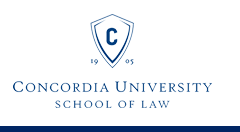Document Type
Essay
Abstract
In September 2016, the United States Commission on Civil Rights issued a report entitled Peaceful Coexistence: Reconciling Nondiscrimination Principles with Civil Liberties. In that report, the Commission argued that the law permits—and justice requires—that decision-makers prioritize nondiscrimination over civil liberties like freedom of religion and freedom of association. For example, the report endorsed the view that religious liberty should be limited as much as possible to freedom of belief; conduct “should conform to law.” This is because religion is discriminatory and can be used as a front for discriminatory activities. Nondiscrimination policies, in contrast, “are of preeminent importance.” Religious exemptions should therefore be read as “narrowly as applicable law requires” and perhaps amended to further protect against discrimination. The report, as one would expect, has encountered sharp criticism. But what developments influenced the conclusions of the report? There are innumerable reasons that a government body might take such an extreme position. Nevertheless, we can begin to understand this decision by considering one of the report’s central sources: the opinion in Christian Legal Society v. Martinez. This Essay will examine the United States Supreme Court’s discussions in Christian Legal Society as a foundation of the policies encapsulated in the report. [excerpt]
CU Commons Citation
Wolanek, Caleb C.
(2017)
"Discrimination and Association,"
Concordia Law Review: Vol. 2:
No.
1, Article 5.
Available at:
https://digitalcommons.csp.edu/clr/vol2/iss1/5
Included in
Civil Rights and Discrimination Commons, Constitutional Law Commons, First Amendment Commons

